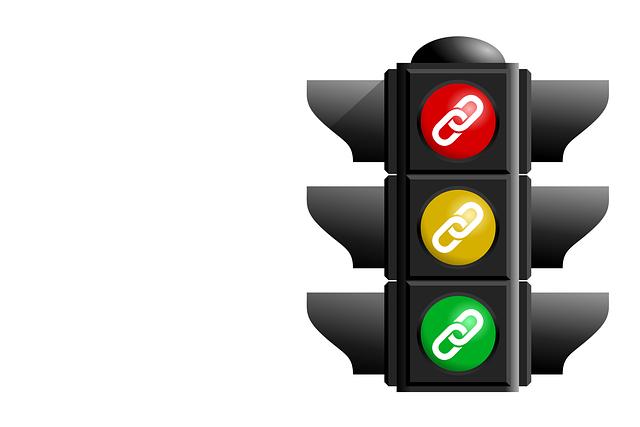- Introduction
- Why Backlinks Matter
- Top Free Backlink Checker Tools
- How to Use Backlink Checker Tools
- Interpreting Backlink Data
- Conclusion
- FAQs
Introduction
In the digital landscape, backlinks serve as a critical element for enhancing website authority and improving search engine rankings. This guide sheds light on the importance of backlinks, introduces you to some of the best free backlink checker tools available online, explains the ease of using these tools, and decodes how to interpret the data they provide.
Understanding backlinks can unlock your website's potential, leading to increased traffic and better online visibility. So let’s dive into the ins and outs of backlink checkers and reveal how you can maximize your website's strength through them.
Why Backlinks Matter
Backlinks, also known as inbound links or incoming links, are hyperlinks that direct users from one webpage to another. They play a pivotal role in search engine optimization (SEO) for several reasons:
Firstly, search engines like Google consider backlinks as votes of confidence. When a reputable site links to yours, it endorses your content, signaling to search engines that your site is credible and authoritative. This can positively influence your ranking.
Secondly, backlinks drive referral traffic. Users who click on these links are likely interested in your content, which can lead to higher engagement and conversion rates. In essence, quality backlinks can enhance your visibility in search engines and increase potential revenue streams.
Lastly, analyzing your backlinks can offer valuable insights into your competitors' strategies, helping you identify opportunities for your own content and link-building efforts. Therefore, understanding the backbone of backlinks is essential for anyone looking to succeed online.

(Image: Pixabay/@Mohamed_hassan)
Top Free Backlink Checker Tools
The internet is replete with various tools that allow you to examine your backlink profile. Here are some of the most effective free backlink checker tools you should consider utilizing:
1. Ahrefs Backlink Checker: Ahrefs offers a limited version of its comprehensive backlink analysis tool for free. With this tool, you can see the top 100 backlinks to any domain or URL, along with key metrics like the Domain Rating (DR) score. It's a great way to get a quick overview of your website's backlink profile.
2. SEMrush: Another leading name in the SEO space, SEMrush provides a free backlink analysis tool. It shows backlinks, anchor text, and referring domains. While its full potential is unlocked with a subscription, the free tool still offers valuable insights for beginners.
3. Moz Link Explorer: Moz's free Link Explorer allows you to check backlinks and determine the Domain Authority (DA) of your website. You can also discover new linking opportunities by analyzing competitors’ backlink profiles, making it an essential tool for strategic planning.
4. Ubersuggest: Designed primarily for SEO keyword suggestions, Ubersuggest also has a robust backlink checking tool. It provides insights into both your backlinks and those of your competitors, alongside other important metrics crucial for your SEO strategy.

(Image: Pixabay/@distelAPPArath)
How to Use Backlink Checker Tools
Using backlink checker tools can overwhelm beginners. However, with a few simple steps, you can quickly analyze your backlink profile:
Step 1: Choose Your Tool: Opt for one of the aforementioned backlink checkers according to your needs. Each tool comes with its own interface, but the general function remains the same.
Step 2: Enter Your Domain or URL: Once in the tool, locate the section for entering your web address. Most tools will allow you to check both root domains and individual URLs for backlinks.
Step 3: Analyze the Results: After running the check, take time to sift through the data provided. Look for the number of backlinks, unique referring domains, and the authority of those linking sites.
Step 4: Formulate an Action Plan: Based on your analysis, decide on your next steps. Whether it's reaching out for backlink opportunities or removing toxic links, ensure to create a plan aligned with your website goals.

(Image: Pixabay/@parveender)
Interpreting Backlink Data
Once you have acquired your backlink data, it’s essential to know how to interpret it effectively:
Understanding Metrics: Tools provide various metrics including Domain Rating (DR), Citation Flow (CF), Trust Flow (TF), Number of Referring Domains, and overall link quantity. Knowing what each metric represents helps you gauge the quality and relevance of your backlinks.
Assessing Quality Over Quantity: Having a large number of backlinks doesn’t necessarily equate to success. Focus on acquiring links from high-authority websites within your niche. A few powerful backlinks can yield more benefits than many mediocre ones.
Identifying Toxic Links: Not all backlinks are beneficial. Some can harm your SEO due to low-quality linking sites or spammy behavior. Use your checker tool to identify any toxic links and take necessary actions, such as disavowing them through Google.
Tracking Changes Over Time: Backlink strategy should be dynamic. Regularly track your backlink profile over time to analyze growth trends, assess the impact of different strategies, and stay aware of your competitors' movements.

(Image: Pixabay/@parveender)
Conclusion
Backlinks can vastly influence your website's performance in search engine rankings and, consequently, your business's profitability. By employing the right free backlink checker tools and understanding how to analyze their data, you put yourself in a stronger position to cultivate a successful online presence. Remember, consistency is key; regularly monitor, assess, and refine your backlink strategies to harness their full potential.
FAQs
What are backlinks?
Backlinks are links from one website to another. They serve as a vote of confidence from other sites, indicating to search engines that your content is valuable.
How do I check my website’s backlinks?
You can use free backlink checker tools like Ahrefs, SEMrush, Moz Link Explorer, or Ubersuggest to check your website’s backlinks easily.
Are all backlinks good for SEO?
No, not all backlinks are beneficial. Links from low-quality or spammy sites can be detrimental to your SEO, so focus on acquiring links from credible and relevant websites.
How often should I check my backlinks?
It’s beneficial to check your backlinks regularly—at least quarterly—to assess growth, identify toxic links, and adjust your strategy accordingly.
